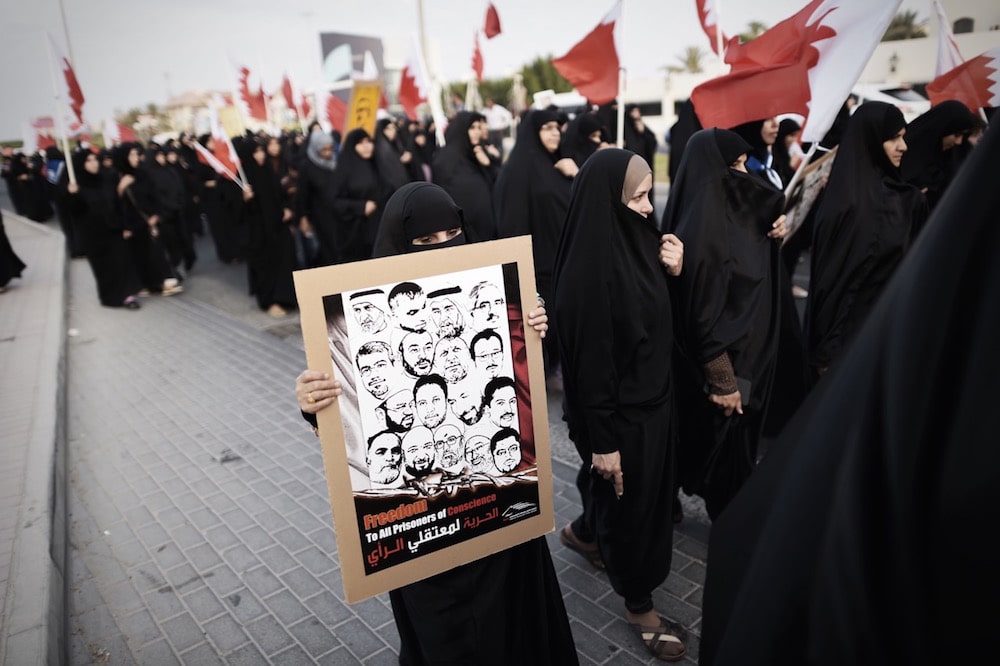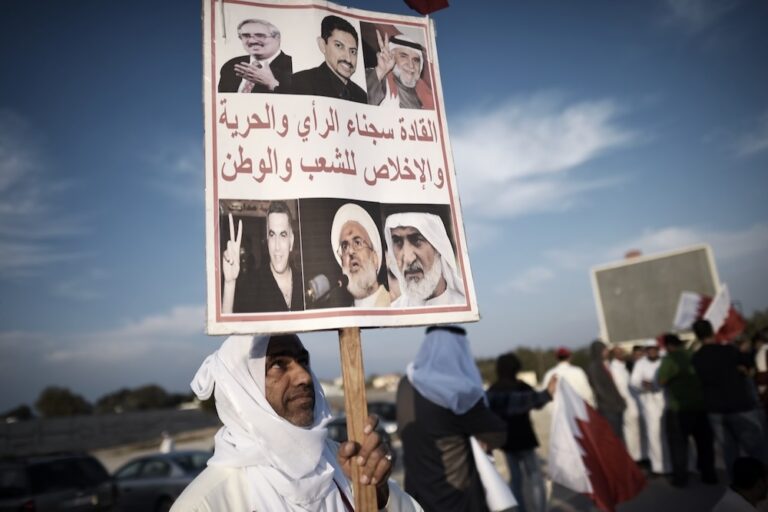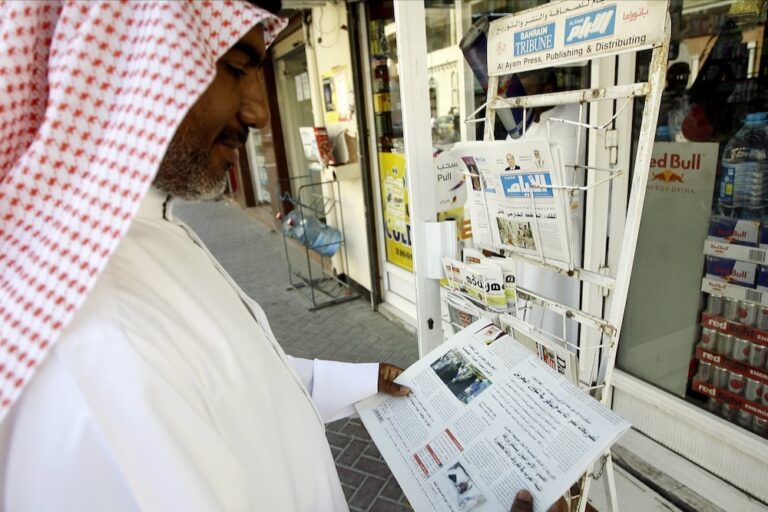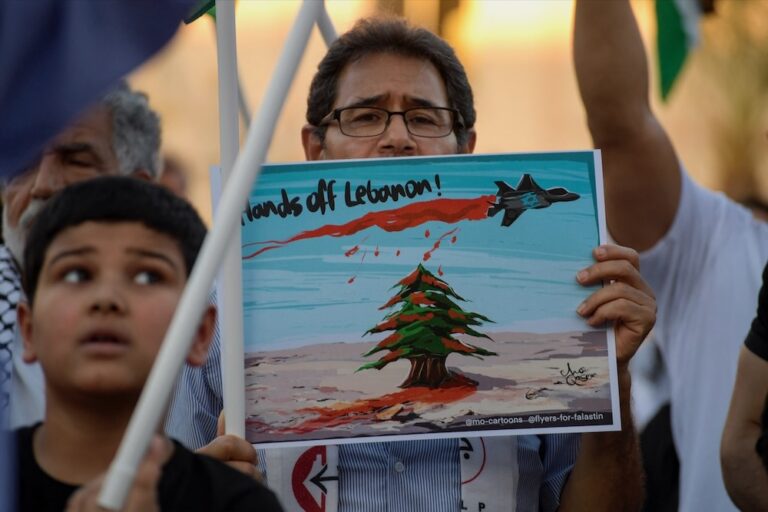In a joint letter to President Elect Joseph Biden, organizations raise their concerns about the deteriorating political situation in Bahrain and urge him to ensure that democracy and human rights are returned to the center of American foreign policy.
This statement was originally published on adhrb.org on 16 December 2020.
Dear President Elect Joseph Biden-
We the undersigned organizations are writing to offer our sincere congratulations for your election to the presidency of the United States. We are writing to raise our concerns about the deteriorating political situation in Bahrain and urge you to ensure that democracy and human rights are returned to the center of American foreign policy. As you are no doubt aware, Bahrain’s 2011 Arab Spring uprising, which saw thousands peacefully protest to demand democratic change, was violently and brutally suppressed by the Alkhalifa regime of Bahrain, in a barrage of human rights violations followed by the imposition of draconian measures.
Unlawful Imprisonment & Medical Negligence of Political Opposition Figures & Human Rights Defenders (HRDs)
Since 2017, Bahrain has outlawed all political opposition parties. Mr. Hasan Mushaima, the leader of the political opposition in Bahrain, is serving an unjust life imprisonment sentence because of his role in leading the pro-democracy movement and on charges related to free speech. Other opposition leaders unjustly imprisoned since the suppression of the 2011 democracy movement, include Dr Abduljalil Al Singace, Abdulwahab Husain, and Shaikh Ali Salman among others. HRDs have also been targeted by the State, including Abdulhadi Al-Khawaja, Naji Fateel and Ali AlHajee, and continue to languish behind bars serving lengthy sentences in prisons where torture and ill-treatment remain prevalent.
Conditions in Bahrain’s prisons, where thousands of political prisoners are incarcerated, are notoriously poor, with prisoners reporting poor sanitation, religious discrimination and widespread medical negligence, which continues to be a serious concern. Political prisoners and HRDs are routinely and punitively denied adequate medical care for chronic conditions, a practice condemned by four UN Special Rapporteurs in September 2019 and eight Special Rapporteurs in November 2019.
The International Committee of the Red Cross has highlighted the heightened vulnerability of prison populations amid the outbreak of the COVID-19 pandemic. Under such circumstances, systematic medical neglect is placing the lives of aging political leaders, many of whom suffer from underlying health conditions, at heightened risk. Hassan Mushaima, the 72-year old leader of the political opposition who is in remission from cancer and suffers from multiple chronic health problems including diabetes, has seen his health significantly deteriorate over the last few weeks as a result of the sustained neglect of his health. In April 2020, 21 NGOs called for Mushaima’s and others’ immediate release.
Crackdown on Civic and Press Freedoms
Bahrain has also clamped down severely on civil society and press freedom, with civil society figures facing routine judicial harassment, particularly from repressive cybercrime legislation. In 2020, several public figures have been prosecuted solely for their social media activity, including prominent defence lawyer Abdullah Al Shamlawi. According to Freedom House, in May 2019, the cybercrime directorate of the Ministry of Interior (MOI) threatened to prosecute citizens who follow social media accounts deemed “malicious” by the government – at least 21 individuals were arrested, detained, or prosecuted for online activity between June 2018 and May 2019. Concerningly, the Bahraini regime has seized the opportunity provided by the coronavirus pandemic to tighten their grip over the country. Since March, authorities have further cracked down on citizens’ online activity and introduced legislation outlawing criticism of government policy. At least 39 people have been arbitrarily detained since the start of the pandemic.
Among them are journalists formerly employed by Al-Wasat, the last independent newspaper in Bahrain that was forcibly closed in 2017, who continue to face harassment in prison. In April 2020, CPJ reported that former Al-Wasat journalist and political prisoner Mahmoud Al-Jaziri was placed in solitary confinement as a reprisal for a recording in which he critiques the Bahrain government’s insufficient measures to protect prisoners from the outbreak of the COVID-19 pandemic in Jau prison.
Unlawful Executions and Death Row Cases
Since the 2011 Arab Spring, the human rights situation in Bahrain has steadily worsened and subsequent to the abandonment of Bahrain’s moratorium on the use of the death penalty in 2017, the rate at which individuals are sentenced to death has increased tenfold. As of November 2020, there are 27 individuals on death row in Bahrain, 25 of whom are at imminent risk of execution, pending only ratification by the King. Of the 25, nearly half were convicted on the basis of confessions allegedly extracted under torture, most recently in the case of Mohammed Ramadhan and Husain Moosa. Similarly, at least five of the six executions since 2017, have been condemned as arbitrary by UN experts due to the use of evidence obtained through torture.
Policy Recommendations:
- Secure the release of all political opposition figures imprisoned solely for peacefully expressing their rights to expression, assembly and association, including Hassan Mushaima, Dr Abduljalil Al-Singace, Abdulhadi Al-Khawaja, Sheikh Ali Salman, Abdulwahab Husain, Shaikh Mohammad Habib Almiqdad, Shaikh Zohair Ashoor, Mohammad Fakhrawie, Ali Fakhrawie, and Khalil Al Halwachi among others.
- Ensure victims of government abuses receive justice and compensation and that human rights oversight bodies are genuinely independent from the government;
- Rescind the arbitrary ban on opposition parties, including Al-Wifaq, Wa’ad, Haq, and others;
- Restore Obama-era human rights conditions on any arms sales or military support to Bahrain and make continued military support for Bahrain contingent on democratization; and
- Make clear the United States’ willingness to relocate the Fifth Fleet should Bahrain continue violating the human rights of their citizens.
- Impose Magnitsky Act sanctions against Bahraini officials who committed crimes related to human rights violations.
We hope you will consider this letter when determining your foreign policy direction and wish the very best for your administration over the next four years.
Yours sincerely,



